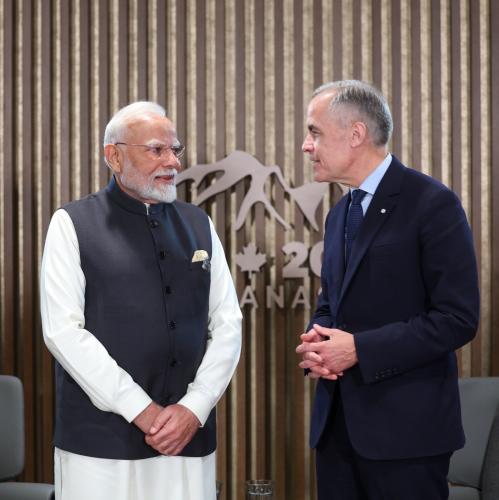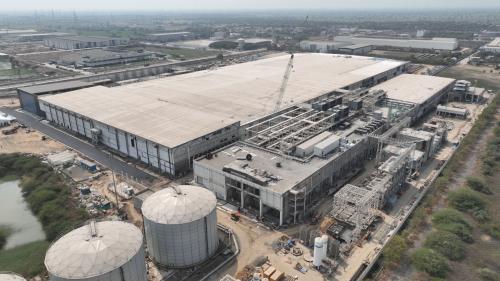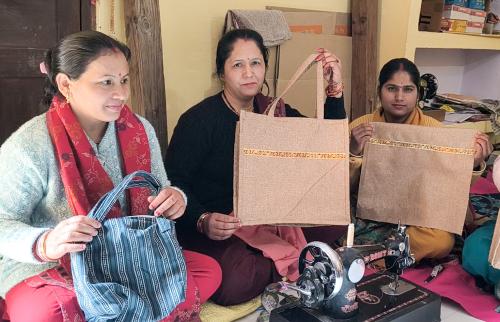By Prashant Shah
Chicago: The 2024 U.S. elections have seen a remarkable increase in Indian-American representation in the House of Representatives, with six Indian-American candidates winning seats. This marks a significant milestone, raising the number of Indian-Americans in Congress from five to six. Notably, Suhas Subramanyam’s victory in Virginia makes him the first Indian-American ever elected to the U.S. House from the state.
With this win, Subramanyam joins a growing cohort of Indian-American lawmakers, many of whom represent the Democratic Party. If Dr. Amish Shah, currently leading in Arizona’s 1st Congressional District, secures his seat, the number could rise to seven. This surge in Indian-American participation in U.S. politics signals a growing influence and a more diverse representation in the country’s legislative process.
This group of lawmakers, often referred to as the "Samosa Caucus," has become a symbol of both cultural representation and political power for Indian Americans. The term, introduced by Representative Raja Krishnamoorthi in 2018, is an informal yet affectionate reference to this group of Indian-American politicians making their mark in Congress.
The Rise of the 'Samosa Caucus'
The "Samosa Caucus" is a term coined to celebrate the rising influence of Indian-American lawmakers in the U.S. House of Representatives. Raja Krishnamoorthi, who represents Illinois's 8th District, was the first to use the phrase to highlight the growing number of Indian-American politicians. Today, the group includes six current members, all of whom have played key roles in shaping national policy, with a particular focus on issues like healthcare, national security, and civil rights.
Indian-American representation in Congress is significant not only for the community but also for the broader American public. It underscores the increasing diversity of the U.S. electorate, with voters from diverse backgrounds making their voices heard in a more meaningful way. The victories in 2024 have only solidified the Indian-American community’s growing political influence.
Meet the Trailblazers of the 2024 Elections --
The following is an overview of the Indian-American leaders who won their races in the 2024 elections, marking a critical moment in the evolution of political diversity in the U.S.
1. Ami Bera – California's 6th District
Ami Bera has been a fixture in U.S. politics since 2013 when he was first elected to Congress. Representing California’s 6th District, Bera is the longest-serving Indian-American member of Congress. His victory in 2024 adds another term to his political career and further solidifies his place as a key figure in the Indian-American political community.
Bera, a physician by training, has been an advocate for healthcare reform, scientific research, and immigration reform. His background in medicine has fueled his passion for expanding access to healthcare and making it more affordable for all Americans. He also serves on the House Foreign Affairs Committee, focusing on international relations and national security. Bera is known for his commitment to holding regular town halls with his constituents, emphasizing accessibility and accountability in his work.
2. Raja Krishnamoorthi – Illinois's 8th District
Raja Krishnamoorthi has served in Congress since 2017, representing Illinois's 8th District. With a background as both a lawyer and entrepreneur, Krishnamoorthi has been a champion for economic growth, education reform, and national security.
He has been particularly active in technology policy, focusing on cybersecurity and innovation. Krishnamoorthi serves as the ranking member of the House Select Committee on the Chinese Communist Party, where he has worked to address issues related to national security and economic competition with China. His legislative priorities also include improving access to education and supporting small businesses, reflecting his belief in the importance of creating economic opportunities for all Americans.
3. Pramila Jayapal – Washington's 7th District
Pramila Jayapal, the first South Asian-American woman elected to Congress, has been a prominent figure since her election in 2016. Representing Washington's 7th District, Jayapal is known for her strong advocacy of progressive policies, including Medicare for All, immigration reform, and civil rights.
A former immigrant rights activist, Jayapal is passionate about creating a more inclusive society. She co-chairs the Congressional Progressive Caucus and has worked tirelessly to unite progressive lawmakers to push for social justice initiatives. Throughout her time in Congress, Jayapal has championed issues related to healthcare, housing, and labor rights, and she remains one of the leading voices for progressive change.
4. Ro Khanna – California's 17th District
Ro Khanna has represented California's 17th District since 2017. With a background in law and technology, Khanna has been a leading voice on issues such as environmental sustainability, economic inequality, and technology policy. Born to Indian immigrant parents, Khanna is a strong advocate for innovation, particularly in Silicon Valley, where he has worked as an attorney.
Khanna’s platform focuses on addressing income inequality, improving education, and combatting climate change. As a member of the House Armed Services Committee, he is also a proponent of diplomacy over military intervention in foreign policy matters. Khanna is known for his efforts to engage younger voters, particularly through social media and technology platforms.
5. Shri Thanedar – Michigan's 13th District
Shri Thanedar, who won re-election in 2024, represents Michigan's 13th District. Originally from Karnataka, India, Thanedar’s journey to Congress is a testament to the American dream. He emigrated to the U.S. in 1979 to pursue higher education and went on to build a successful career as an entrepreneur in the chemical industry.
Thanedar is a proponent of economic development, healthcare access, and educational opportunities, particularly for underserved communities. His background in business and technology has informed his legislative priorities, which include advancing technological innovation while ensuring that the benefits of progress are shared equitably among all Americans. Thanedar’s story of entrepreneurial success resonates with many of his constituents, and his focus on community empowerment remains a cornerstone of his political identity.
6. Suhas Subramanyam – Virginia's 10th District
Suhas Subramanyam made history in the 2024 elections as the first Indian-American elected to the U.S. House of Representatives from Virginia. Representing the 10th District, Subramanyam brings a wealth of experience in both public service and technology policy. Before entering Congress, he served as a Virginia State Senator and was appointed by President Barack Obama as a White House technology policy advisor.
Subramanyam’s legislative focus includes healthcare access, education reform, and economic development. His commitment to public service reflects his belief in creating opportunities for all Americans, especially in the areas of healthcare and education. Subramanyam’s victory represents a significant achievement for the Indian-American community in Virginia and is a step forward in broadening the scope of political representation in the state.
7. Dr. Amish Shah – Arizona's 1st District (Pending)
Dr. Amish Shah is currently leading in the race for Arizona’s 1st Congressional District, and if he secures the final victory, he will join the ranks of the "Samosa Caucus" in the House of Representatives. A physician by training, Shah’s campaign has emphasized healthcare access, reflecting his experience working in underserved communities. His victory would add another important voice advocating for healthcare reform in Congress.
The Future of Indian-American Representation in U.S. Politics
The 2024 elections have demonstrated the growing political influence of Indian Americans in the United States. With six, soon to be possibly seven, Indian-American members in the U.S. House of Representatives, this demographic is gaining significant traction in American politics. Their collective efforts are helping shape policy on critical issues such as healthcare, economic development, and national security.
As more Indian-Americans rise to positions of political leadership, their voices will continue to resonate not only within their communities but also across the broader American electorate. Their victories in the 2024 elections reflect a continued commitment to public service and the idea of a more inclusive and representative democracy.
These lawmakers are proving that the American story is not one of a singular identity but one shaped by diverse voices, cultures, and experiences. The "Samosa Caucus" is an enduring symbol of this transformation, and its members’ impact on U.S. politics is bound to grow in the coming years.













